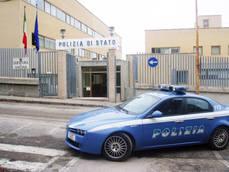Father and son die trying to help other son in fish plant
Son who fainted survives
08 April, 15:14 (updates previous).
(updates previous).(ANSA) - Molfetta, April 8 - A father and son died after inhaling toxic fumes while trying to help another son who had fainted while cleaning a tank in a fish-processing factory at Molfetta near Bari Tuesday. The second son survived.
The victims, cleaners working for an outside firm, were identified as Nicola Rizzi, 50, and Vincenzo Rizzi, 28.
The other son, Alessio, was taken to hospital in critical condition.
The incident occurred close to an industrial vehicle maintenance company where five workers died in one of Italy's worst workplace accidents of recent years on March 3, 2008.
That accident, which spurred new workplace safety laws, happened when a worker slipped while cleaning inside the tank of a lorry used to transport sulphur and was overcome by lethal fumes.
Colleagues of the man, including the company owner, tried to come to his rescue but each suffered the same fate.
Four of the men died at the scene, while the fifth died in hospital after firemen pulled him from the tank alive.
The events were the latest in a long string of workplace accidents in Italy.
In February 2008 four people died in an explosion at a fireworks factory near Orvieto, and seven people died in a fire at the ThyssenKrupp steelworks in Turin in December 2007.
According to the latest statistics from Eurostat, Italy's annual average of 2.5 deaths per 100,000 workers is below the EU average of 2.7. But unions argue these figures are unrealistic, since many accidents involve immigrant workers who are not included in the calculations as they work off the company books.
According to ANMIL, an association representing injured workers, personnel employed by government agencies to check that safety practices are adhered to need to be dramatically increased.
The association said that if every Italian business was to be checked by the number of staff currently available, each would receive a visit once every 23 years.











